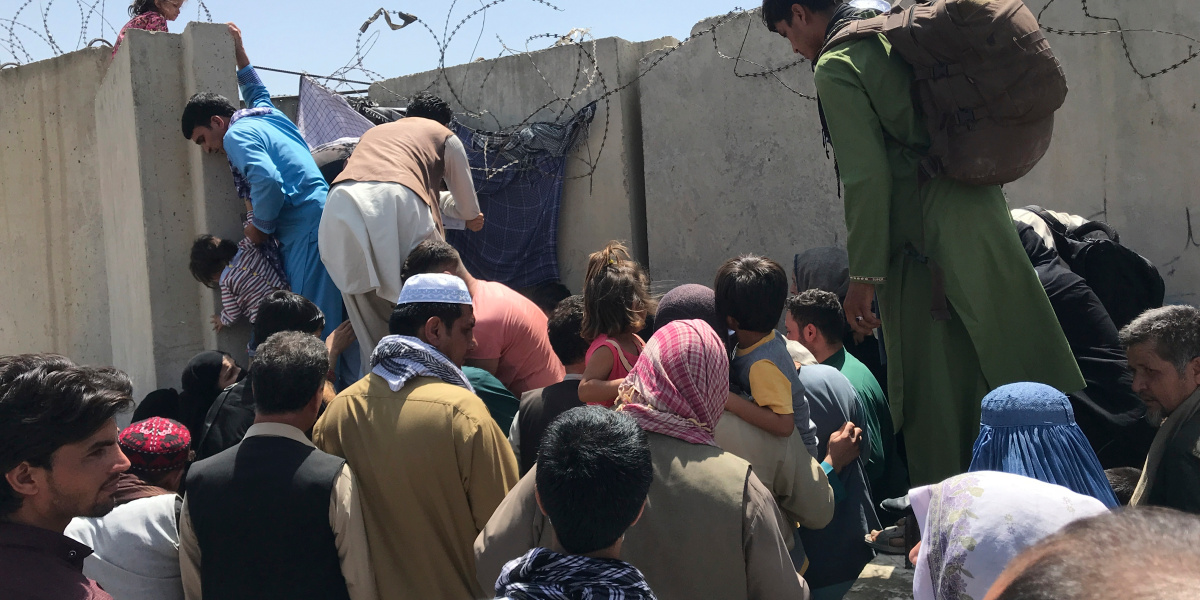
The sudden collapse of Afghanistan’s government has led to a frantic attempt to accelerate online relief and evacuation efforts. These attempts, organized largely via Google Forms, WhatsApp and ,private social media groups, are trying to fill the void left by the US government’s failure to protect vulnerable Afghans. It could be the only lifeline for many trying to flee the country—but at the same time it is not without risk, as observers fear crowdsourced information could be used by the Taliban to identify the very people in need of rescue.
The war in Afghanistan took 20 years and claimed at least 174,000 lives, but the fall of Kabul took place over the course of a weekend. With the Taliban closing in, former president Ashraf Ghani fled the country on Saturday, August 14. By Sunday, the Taliban had entered the Afghan presidential palace.
But as residents of Kabul either waited fearfully to see what the takeover would mean for them or tried to flee through chaotic scenes at the city’s airport, Afghanistan’s only evacuation point, a frantic volunteer effort was underway to help as many people as possible.
Bypassing bureaucracy
Afghans and their allies had been organizing for weeks, but as the last major cities fell to the Taliban within the span of a week, often without resistance, these efforts took on a new urgency. Working largely online, informal networks of people in and outside the country—including journalists, nonprofits, universities, and even government officials who sometimes worked outside of official policy—were organizing lists of Afghans eligible for different resettlement programs or even trying to bypass the slow-moving bureaucratic processes completely.
“Real-time messaging platforms are being used to make snap decisions. It signals the intensity of the crisis and desperation.”
Mark Latonero, Harvard Kennedy School
Several groups were planning to charter planes for private airlifts. Some planned to crowdsource information on road conditions, and identify and help Afghans stuck in the provinces make their way to Kabul. Others, meanwhile, focused on more specific targeted groups such as journalists, women leaders, and Afghans who had worked on specific projects.
“If you have someone in Kabul that can get to the airport by the end of the week, please input the information here to share with air evac company and the State Department,” reads the top of one Google Form created by a coalition of national-security-related organizations hoping to evacuate Afghans who already have their passports.






